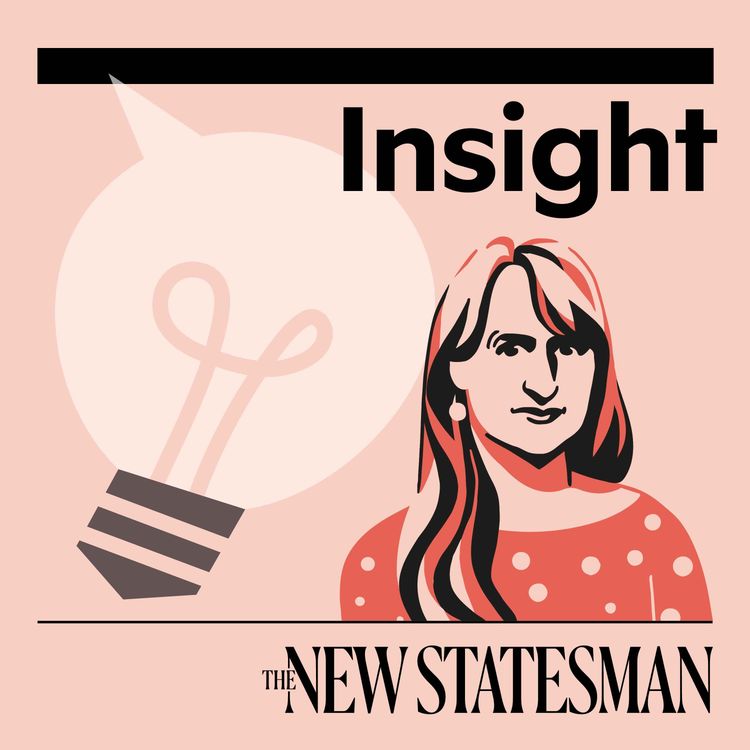Share

Daily Politics from the New Statesman
Is more devolution really a good thing?
Labour’s white paper on how further devolution might work is due to be released in the next few weeks. It has been reported that the government is considering a reorganisation of local councils including abolishing some councils and replacing them with larger unitary authorities
However, there have been suggestions Labour’s plans to bring power to the people, could actually make it more distant than ever.
Kate Lamble is joined by Matthew Engel, Megan Kenyon and Jack Shaw.
SAVE £££ THIS CHRISTMAS:
⭐️ Gift big ideas, bold politics, and proper journalism from just £2
LISTEN AD-FREE:
📱Download the New Statesman app
MORE FROM THE NEW STATESMAN:
❓ Ask a question – we answer them every Friday
⏰ Get our daily politics newsletter every morning
✍️ Enjoy the best of our writing via email every Saturday
More episodes
View all episodes

Jimmy Lai’s Hong Kong show trial
27:25|Jimmy Lai, Hong Kong’s most famous media tycoon and a British citizen, could be sentenced to life in prison.What does his case say about the political climate in Hong Kong, and how might it affect relations between the East and West?Oli Dugmore is joined by Katie Stallard.
Can Andy Burnham be the next Prime Minister?
20:00|Speculation surrounding a leadership challenge to Keir Starmer is rife.Andy Burnham, Manchester Mayor, is in the mix as a challenger. But can he find the necessary seat in parliament, and what hurdles does he face?Anoosh Chakelian is joined by Ethan Croft and George Eaton to discuss.
Are Jews safe?
32:08|The "evil" mass shooting at Bondi Beach was the latest in a rising number of antisemitic attacks.16 people died in the attack in Sydney, Australia. They were Jews who had gathered to celebrate the first night of Chanukah. Among them, a holocaust survivor and a ten-year old girl.Antisemitic attacks are on the rise. In this year to September, Australia recorded 1654 anti-semitic incidents. That's three times higher than any year before the war in Gaza. Here in the UK, Jews faced over 1,500 attacks in the first half of 2025, according to data from the Community Security Trust. That’s the second-highest total in the first half of any year on record, and includes the terrorist attack on a synagogue in Manchester in which two people died. In July, a report authored by Lord John Mann & Penny Mordaunt found “widespread failures to address anti-jewish discrimination in NHS, education, arts and policing”. Oli Dugmore is joined by Rachel Cunliffe and Hannah Barnes to ask: are Jews safe?READ: The Bondi Beach shooting was an attack on Jews.
Is Britain complicit in genocide?
57:42|Journalist Peter Oborne claims both Labour and Conservatives have fallen short on their response to Israel's war in Gaza.--Peter Oborne is a journalist, author and commentator. He was the political editor of The Spectator, a commentator for the Daily Telegraph and now writes for Middle East Eye. A long-time conservative, Oborne joins Oli Dugmore to explain why he believes the Conservative Party have abandoned their principles, and to discuss the role that successive British governments have played - or failed to play - in dealing with genocides around the world. Peter Oborne's book "Complicit: Britain's role in the destruction of Gaza" is out now.
You asked, we listened ... to Liz Truss' podcast
18:33|In this week’s episode of You Ask Us, one listener wonders, is the media infatuated with Zack Polanski?And another challenges our journalists to listen to the Liz Truss podcast.You ask, we deliver. Anoosh Chakelian is joined by Rachel Cunliffe.
Wes Streeting is "pretty frustrated, tbh"
28:42|Wes Streeting denied plotting to oust Keir Starmer.Ailbhe Rea met the Health Secretary to learn what he's really thinking.***Ailbhe writes: Labour is in danger of presenting itself as the “maintenance department for the country”, he says. “The problem with that kind of practical, technocratic approach is that if someone else comes along and says, ‘Well, I’ve got a maintenance company too, and mine’s cheaper,’ why wouldn’t people go, ‘OK, well, we’ll give that maintenance team a try’?” He doesn’t name Starmer, but the critique of the Prime Minister’s “practical, technocratic” leadership is clear.Streeting has denied plotting against the Labour leader. But when we speak, he strikes me as someone planning for what may lie ahead. I meet a cabinet minister ranging beyond his brief, thinking seriously about what his party needs to do to win the next election – and beginning to outline an alternative to that “maintenance department” approach.***Ailbhe Rea joins Anoosh Chakelian on Daily Politics from the New Statesman to discuss her interview with Wes Streeting, including the behind-the-scenes parts she couldn't reveal in her article.📚 READ Wes Streeting: "I'm pretty frustrated, to be honest"https://www.newstatesman.com/politics/uk-politics/2025/12/wes-streeting-im-pretty-frustrated
Natalie Fleet MP: I won't report my rape
41:40|If you are raped in London today, you could be waiting until 2030 for a trial. Justice secretary David Lammy has stated that 60 per cent of rape victims drop their cases whilst waiting for the trial. Rape Crisis estimates 1 in 6 women go to the police.Oli Dugmore is joined by Labour MP Natalie Fleet, who has written for the New Statesman on the fight for justice for victims of rape.
Nigel Farage wants to be American
27:38|Why does the Reform leader spend so much time in the US? Freddie Hayward has been speaking to him to find out.--Winston Churchill had an American mother. Boris Johnson was a dual citizen. But if Nigel Farage makes it to Downing Street, he’ll have closer ties to the US than any other British PM. That’s the argument of our correspondent Freddie Hayward, who joins Oli Dugmore on Daily Politics.He's been speaking to Farage and the MAGA figures he calls friends to find out how the Reform leader hopes to bring Trump tactics to British politics - and rekindle the most "special" of relationships.
Labour’s Green attacks are misfiring
41:41|Keir Starmer described Green party policy as “nuts” and “dangerous” in an interview with the Observer yesterday. But is he underestimating one of Labour’s biggest threats?And is Starmer alienating a generation of young voters who might run into the arms of Zack Polanski?Rachel Cunliffe is joined by George Eaton and Will Dunn.